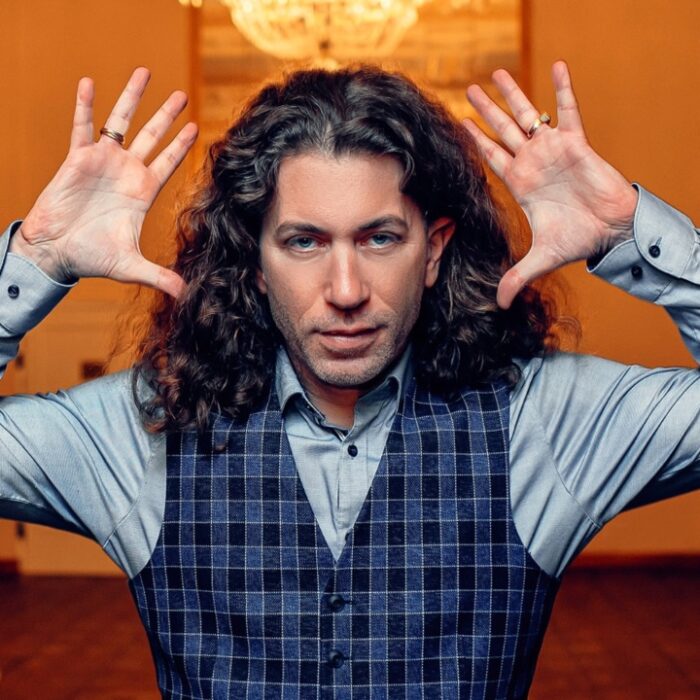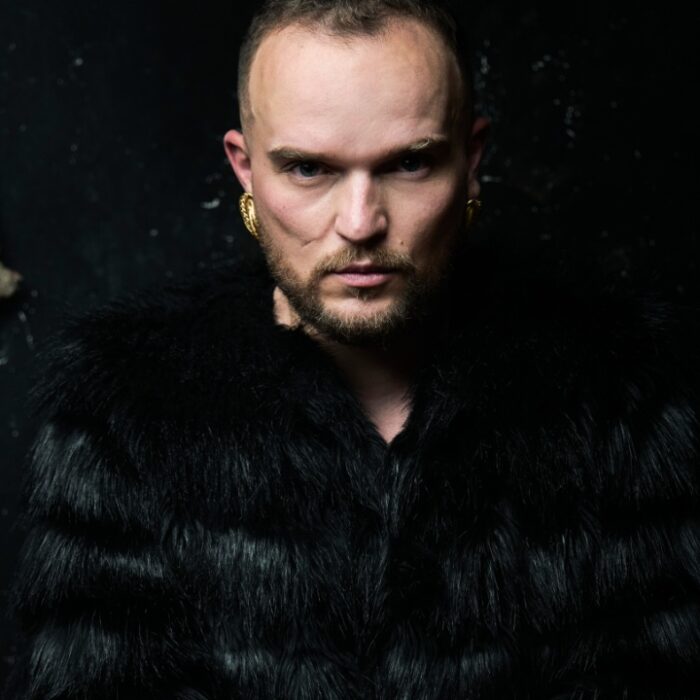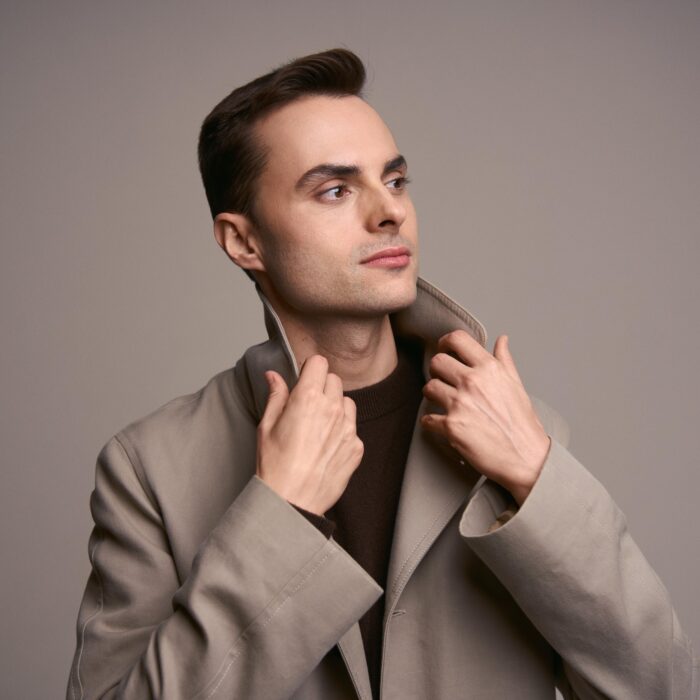
Q & A: Carolina López Moreno on Her Royal Opera House Debut, Origins & Living in the Moment
By Mike Hardy(Photo credit : Nadeesha Rathnayake)
Carolina López Moreno, Bolivian-Albanian Soprano, born and raised in Germany, is a versatile, award-winning artist, and is regarded as one of the most promising sopranos of her generation. On the brink of an international career, she has already collaborated with renowned orchestras and conductors, including the London Symphony Orchestra under Sir Antonio Pappano and Zubin Mehta. Notable recent performances include her portrayal of Magda in La rondine in London, Cio-Cio-San in Madama Butterfly under Daniele Gatti in Florence, and Leonora in Il Trovatore under Zubin Mehta.
OperaWire caught up with Carolina at the Royal Ballet and Opera House in Covent Garden, where she was making her final appearance as Marguerite in Charles Gounod’s ‘Faust’
OW: You are making your Royal Opera Debut this season. How has it been for you, and what are your overriding memories?
CLM: I have to tell you; it has been one of the most amazing moments in my life. I’m a person who doesn’t arrive with expectations on the outcome – the only expectation I always have is towards myself. When they called me and asked me to replace Lisette Oropesa, who’s an amazing soprano, and to jump into this super famous production with a star cast and the conductor… in THIS theatre… it was just so overwhelming. So, when I arrived here, I just tried to be able to give my best. I had a month off to prepare for this role. I have been super busy the past couple of months, and I’ve been without an apartment for over a year. So I’ve been traveling with luggage and a dog, sleeping on friends’ couches, in Airbnb’s, and in hotels because there was no place that was mine. Now I finally have my home in Milano. I wanted it to be my safe space. So it took a while to create it. Finally, in April, when I had this month off, I finally slept in my fully set-up home. So everything has been very emotional. Also, finally managing to rest after feeling really low, energy-wise. Then my body slowly started recharging — like charging, charging, charging — and then, when I came here to Covent Garden, I exploded. (laughs)
OW: So, you are staying on your own here in London?
CLM: Yes, I had my family visiting me for the premiere, but I don’t have family here. I’m on my own. I mean, that’s part of our life, I guess. But I’m very lucky to be meeting incredible people. I’ve made – at least, I don’t know how many – but a few really good friends.
OW: How do you get on working with Stefan Pop?
CLM: Oh, amazing! He’s so fun. I felt a very familiar energy with him. We had never worked together before, and when we sang together, it felt like an embrace.
OW: Tell me about your background. You’re Albanian/Bolivian?
CLM: Yes. My mother is Albanian, and my father is Bolivian. I grew up with these completely different cultures, especially being born and raised in Germany. I grew up with three languages. I would say German is my mother tongue because it’s the country I was born and raised in. But my second language is Spanish, then Albanian, and I learned Italian and English in school, so I’d say I speak five languages.
OW: So, where did music all start for you? When did you discover you had a voice with potential?
CLM: I started studying classical music at 21, quite late, but I had been educated in classical singing since I was a teenager because I wrote my own music, and my mother (I’m one of six children) had always made it a priority for us to have a sport and an instrument that we had to learn. My mother found out that my instrument was going to be my voice. Out of all of us kids, I was probably the weirdest, because I think I’ve always been an artist. And when I was emotional, I expressed it with my voice. I sang a lot. I was probably 11. I didn’t even read scores — I just composed my songs. R&B, soul, these kinds of ballads. I was talking about all those emotions, and my mother was like: “How do you know these kinds of emotions?” I hadn’t even been romantically in love yet, but I sang about it. My mother then took me to classical music lessons to learn properly to control my voice. I had always had potential for classical music, but my passion for it wasn’t very strong. In my voice lessons, I was confronted with a lot of classics from the late 17th and early 18th centuries. I never knew about the Romantic and Verismo repertoire — I didn’t know anything. I was a Pop Singer, but then I decided to study musicals. I was a good dancer, and I also taught Latin American dance for 10 years. Acting was something I knew instinctively. It was very strong in me. So, when I studied musical theatre, I didn’t know that in the first two years you get a classical education: singing, dancing, acting. You study Shakespeare, you take ballet class, and you sing classical music. My teacher back then asked me: “What are you doing here with that classical voice?”
And I told her I’d already done a lot of classical music, but I always seemed to be hiding it — because everyone who heard me sing this way said, “Oh, you HAVE to become an opera singer!” But I didn’t even know what opera was, to be honest. So, she sent me home to listen to “Aida,” “Butterfly,” and “Traviata.” I listened to Maria Callas, Joan Sutherland, Montserrat Caballé, and Anna Netrebko for the first time. I think I cried for three days. It was an emotional awakening — like my soul exploded. I said: “If this is classical music, if this is opera… what have I been doing my whole life?”
And then I studied classical music. Ever since then, it has been a journey of fight and passion. I debuted in 2021. I’ve always focused on art, hard wor,k and that’s a strength I’m very proud of. Even though people have misjudged me by my looks, I’ve always loved the moment of surprise when I opened my mouth to sing.
OW: But of course, you are, inarguably, a very attractive woman — and it wouldn’t be unreasonable for some to consider that an aid to your career.
CLM: Sure. It would be weird if we looked at something attractive or beautiful and didn’t find ourselves being attracted to it — it’s part of being human.
OW: You’re doing some work later this year with Maestro Antonio Pappano? He has a great reputation as being a ‘singers’ conductor’. Did you find that, having worked with him at the Barbican in “La Rondine?”
CLM: I’ve never met a person who gives me so much peace while singing. He takes me with him, he liberates me and lifts me — it’s like an elevation, you know? And then he is such a wonderful and humble person who is also demanding to make you create the best quality. When I sang with him for the first time at the Barbican in “La Rondine,” I used the score in the beginning of rehearsals, but I felt like I couldn’t be part of his magic. I felt like something was blocking me by using the score, so I decided: “I’m going to risk it and put the scores away.”
Of course, I wanted to be really precise, and I wanted to give him everything, come è scritto, in the score — but I had also such a short time in rehearsals, having jumped in at the last moment. But then I’d rather risk screwing up a measure, than not be part of his magic. That’s why I didn’t use the score.
OW: Yes, but you must have already felt a strong connection to this role to perform it so well and without having to reference the score?
CLM: We need to be connected to the roles. I think to sing a role where you emotionally and vocally don’t feel connected means you kind of have to adapt to something that feels unnatural or uncomfortable and that’s very unsatisfying.
Being an Opera Singer is my job — and of course, the finances are an important part of it. But it takes a while to get there. So, there was only my dream of creating art on the most important stages in the world — and the rest comes by itself. And in that case, we need to be connected to what we’re doing. We need to feel free. We need to feel satisfied. And Magda, in “La Rondine,” feels so good.
OW: You’ve sung quite a lot of Puccini… not much in the way of Mozart though, which is a more common, traditional development for a young soprano?
CLM: Mozart was an absolute genius in what he did. But I have to admit he doesn’t respond to my soul the way other composers do. There are a few roles I’d love to try out — for example, Contessa, Donna Elvira, and Elettra. But for me, early Romantic through Verismo is probably more suited to my strengths vocally and stylistically and I think it’s healthiest for me to stick with that.
OW: I assume Tosca is on your to-do list? I’ve heard you sing a very commendable Vissi d’arte.
CLM: Thank you, yes — it is. I will sing this role, and I believe it may become a very important role in my life. I’ve already tried out a lot of parts from Tosca, and they feel so real to me — it’s almost scary. I think I respond well to all of Puccini’s female roles… in every part of me. I don’t know how to express it. It’s a feeling — not something I wish for or choose. But I’m also super excited for everything else I’ll sing. So much amazing repertoire. I can’t wait to do, for example, more Verdi. Verdi is “cleaning” my voice. It demands so much in vocal skills that it’s like going back to the roots of everything.
OW: You say Verdi takes you back to the roots. What roles, specifically, and what else would you like to sing?
CLM: Well, other than already having performed “La Traviata” and “Il Trovatore,” the roles I would absolutely like to debut are Aida and Desdemona. Other than that, I’d really love to sing “Anna Bolena” and all the other queens of bel canto. Those are the roles I’m really aiming for. What else? Whatever comes! I think there’s so much repertoire for me. I can’t wait to dive into every one of them and find out what they have to offer.
I’m feeling so on fire and full of energy. I have so much to give. So many people worry about singing for the next 30 years. I don’t know if I’ll even be alive in 30 years! You know what my goal is? I want you to come to the opera and experience art. Not just a singer who sings — but an artist who takes you into another dimension. I will try to do it as long as I can, and I will do it with all my heart and everything I have — because that’s what art deserves. Will I work the hardest at training and maintaining vocal, physical, and mental health? Of course. But you will never see me go on stage without giving it my soul.
One of my biggest wishes is to bring people into the opera — because to me, it’s one of the most impressive and overwhelming art forms. When people tell me they came to the opera and left thinking: “Oh my God, that’s probably how Marguerite would really breathe… how she would really express herself,” — that’s what fulfils me. We never know how long we can do this job — but at least I want us to have the time of our life while doing it.



